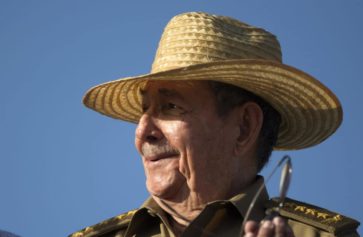Cuba’s government continues to show signs of complete transition, granting dissident blogger Yoani Sánchez a passport after years of denial under the country’s old emigration laws. The government recently repealed the law requiring exit permits for citizens looking to travel outside the country, a criteria imposed after the communist revolution in 1959. The policy had been the target of international and domestic criticism for decades, but under new leader Raúl Castro, Cuba has been working to counteract some of its more extreme policies.
There was some skepticism about whether dissents like Sánchez would be allowed to travel freely under the new law, but on Thursday she confirmed that she had received her passport. The new law, which came in to effect on Jan. 14, granted the Cuban writer the freedom to travel that she had been denied on 20 prior occasions.
For years Sánchez has been a premier blogger, winning awards for her critical coverage of Cuban affairs. She has been arrested on multiple occasions, most recently in November for “disseminating false information against international peace.” Sánchez said in a radio interview with Marti Noticias that she will use her passport to visit several European and South American countries, and may reunite with her sister who lives in South Florida.
“They called me at home to say my passport was ready! They just delivered it,” she posted, following up with pictures of her new documentation. “I am both happy and sad; on the one hand, I have my documents to be able to travel, but many of my friends like (fellow activist Angel Moya), are not going to be allowed.”
Moya reported that his own application had been denied Thursday. He was one of 75 dissidents jailed in 2003 for treason, but was released early from his 20-year prison sentence. He told The Associated Press that his passport could not be processed “for reasons of public interest.” Moya, 49, acknowledged that he was technically still obligated to serve his sentence, leading to the denial.


